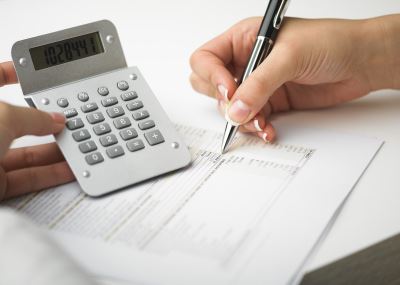Best Practices for Small Business Bookkeeping
February 4, 2016 / /

When you do your own bookkeeping, it’s hard to be confident that you’re doing everything correctly. Follow the advice of our three small business bookkeeping experts, and you’ll be on the right track!
Jenn Kubilis
- Ready to try a bookkeeping program like Sage 50 or QuickBooks, or perhaps an online program such FreshBooks or Wave, but not sure how to get started? Consider hiring a bookkeeper to set up your Chart of Accounts and give you some training as to how the program works.
- A set of books will provide you with financial statements. The most recognizable is the Profit & Loss statement, which shows your sales and expenses and whether you made or lost money.
- Avoid penalties and late fees on remittances such as GST/HST, Payroll and Income Tax by keeping your paperwork organized.
- Regular bookkeeping keeps your goals in sight and lets you know when you have financial resources available to accomplish other goals.
- Your books are not only for the Government; ultimately they are for You, a tool to run your business successfully. Without records, you cannot see how well your business is doing and where it is going.
Cathy A. Snelling
- The most important thing is to get a good accountant to do your taxes. Make sure they have a professional designation, meaning they carry liability insurance. It is very important!
- In the beginning, recording your expenses and your revenue (invoices to clients) on an Excel spreadsheet may be sufficient, depending on how much expenses you have.
- Even if you don’t make over $30K, you should charge HST. Always put away the HST you collect and 20% of the net for taxes.
- Track your business use of your car (I keep a Excel spreadsheet on a clipboard in my car). At the start of the year enter the odometer reading, and then a form with “Start” “End” “# of KM’s” and “Date/Where”. Then, at the end of the year you have a mileage/travel log. You should claim anything to do with business.
- Define the area of your home office. Some accountants calculate your home office expenses by dividing your utilities and other related bills by the number of rooms you have; others calculate it by square footage.
Jacquie Manore
- Always speak to your accountant regarding incorporation to see if it makes sense for your business. There can be significant tax savings that will override the extra cost of incorporation, plus there’s additional protection for liability.
- Keep your business activities separate from personal activities, i.e. have a separate bank account for the business, and have a separate credit card used solely for the business. It doesn’t need to be a “business” credit card per se, just a card that is only used for business.
- It is very important to write the client name or business activity on any meal receipts that you are expensing. The CRA is very particular about meals and this is an easy and safe step to ensure that you don’t get meals disallowed in the future. It’s also good to do this for hotels and flights.
- If you’re not keeping a mileage log, at least have beginning and ending odometer readings for your fiscal year.
- Always consider the value of getting a bookkeeper. It can cost very little in the scheme of things, and will give you great peace of mind.
Post your bookkeeping questions in the comments, or contact one of the experts listed above.
Image courtesy of adamr / FreeDigitalPhotos.net
Posted in Business Tips
